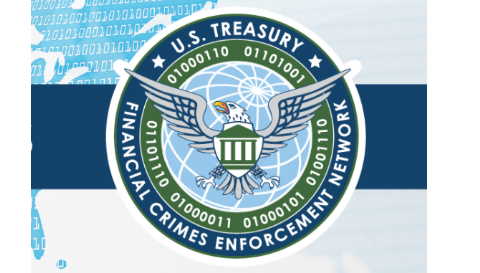Conflicts & Compliance — Firm First Back Against Conflicts Allegations, Corporate Transparency Act: FinCEN Filing Deadline Reinstated (Wait, Nevermind Again)
Posted on
For those following this saga, Update 1 [Dec 25]: “Corporate Transparency Act Filing Requirements Reinstated: Act Now” —
- “The Corporate Transparency Act (CTA) filing requirements have been reinstated and most filings will now be due January 13, 2025 instead of the December 31, 2024 prior deadline. The bottom line is that any entity classified as a ‘reporting company’ under the CTA has to file with the Financial Crimes Enforcement Network of the Treasury (FinCEN). Each reporting company will have to file Beneficial Owner Information (BOI) for each person deemed a beneficiary owner (BOs). While a detailed discussion of the legal arguments in the cases challenging the CTAs constitutionality, and the counter arguments by the government would be interesting, that will not help those required to report to address that requirement.”
- “Reporting companies include closely held business entities whether they be limited partnerships (LPs), limited liability companies (LLCs), S corporations, other corporations unless they are specifically exempt. FinCEN has made the requirements broad and complex and even includes entities that might be inactive or terminated.”
- “Beneficial Owners include anyone who owns 25% or more of a reporting company or who has ‘substantial control’ over an entity. The definition of ‘substantial control’ is both broad and vague so that many people who are officers, directors, managers, key employees, etc. of a reporting company may have to provide information to the reporting company to report them as a BO. If a trust owns or controls interests in a reporting company, the filing requirements become exponentially more complicated and many or all people named in fiduciary and other capacities in the trust may have to provide BOI information to the reporting company.”
- “‘In light of a December 23, 2024, federal Court of Appeals decision, reporting companies, except as indicated below, are once again required to file beneficial ownership information with FinCEN. However, because the Department of the Treasury recognizes that reporting companies may need additional time to comply given the period when the preliminary injunction had been in effect, we have extended the reporting deadline…'”
Followed by Update 2 [Dec 26]: “FinCEN beneficial ownership registry deadline paused again” —
- “The January deadline for covered businesses to register their beneficial ownership information is once again on hold following a Dec. 26 order from the Fifth Circuit Court of Appeals.”
- “On Dec. 23, the Fifth Circuit lifted a nationwide injunction issued by the district court judge earlier this month in a Texas lawsuit challenging the Corporate Transparency Act, which requires covered businesses to report their beneficial ownership information to the Financial Crimes Enforcement Network. Three days later, ‘in order to preserve the constitutional status quo while the merits panel considers the parties’ weighty substantive arguments,’ the panel of Fifth Circuit judges that will consider the merits of the government’s appeal of the preliminary injunction vacated that decision and once again enjoined enforcement of the reporting rule and CTA.”
- “The lawsuit in Texas was filed by the National Federation of Independent Business and several of its members. The plaintiffs argued that the CTA exceeded Congress’ authority to regulate interstate commerce, that it violates the First Amendment by compelling speech and infringing freedom of association and that it violates the Fourth Amendment by forcing the disclosure of private information.”
- “[See] FinCEN’s BOI page for updates and revised instructions.”
“Jenner & Block Hits Back at Keller Postman in Dispute” —
- “Jenner & Block is defending itself against allegations it hired a former FBI investigator to ‘harass’ people who filed claims against its client, video streamer Tubi.”
- “Tubi in a May 31 complaint accused Keller of bringing thousands of frivolous arbitration claims against it for running ads that allegedly targeted users based on age and gender. Jenner responded on Monday to allegations it acted unethically in its investigation into the validity of certain claims.”
- “Keller ‘seeks to divert the court’s attention from the troubling findings of Tubi’s investigation’ by calling Tubi’s investigation unethical, the company said in the new filing. Tubi is seeking to file an amended complaint which includes new evidence that would bolster its case against Keller, the lawyers said.”
- “Tubi says Keller’s business model is to flood target companies with a tidal wave of arbitration claims to pressure them into settling rather than paying the legal costs of fighting the claims. Many companies’ terms of service state that customers must arbitrate any dispute and typically companies pay for customers’ initial filings, which can cost anywhere from $100 to $325 per case, in addition to case management fees and arbitrator compensation.”
- “An estimated 4,500 claimants didn’t register with Tubi under the email addresses listed in the claimant’s arbitration demands, according to Tubi. An estimated 600 claimants started the registration process but didn’t complete it, or didn’t watch Tubi content using the account linked to the email address during the relevant time period. Another estimated 2,500 claimants completed the account verification process but didn’t watch Tubi content using the associated account during the relevant time period.”
- “Keller fired back in a motion to disqualify Jenner and a separate lawsuit against the firm last week, stating Jenner violated lawyer ethics rules by directing a former FBI investigator to coerce Tubi claimants into signing false declarations to support its case. Keller also claimed Jenner misled the court about the volume of claimants without registered Tubi accounts.”
- “Jenner first revealed it hired a former FBI agent to interview 22 of the 29 claimants who had withdrawn arbitration demands against Tubi in a Nov. 25 proposed amended complaint. Some former claimants said they weren’t aware of being represented by Keller Postman or having claims against Tubi, according to Jenner.”
- “Keller seized on the interviews in a Dec. 9 motion to disqualify Jenner and oppose its motion to file an amended complaint. Keller said the investigator interviewed the claimants without the knowledge of their counsel at Keller and coerced them into making false statements. Keller included exhibits by claimants asking to withdraw their previous statements.”
- “Although Jenner claimed the investigator only interviewed withdrawn claimants, Keller said its client relationship with the withdrawn claimants didn’t end once their claims were withdrawn. ‘Jenner’s response ignores what every lawyer knows: counsel can represent clients in a ‘matter’ regardless of whether a pleading has been filed or withdrawn,’ Keller said in a Dec. 9 court filing.”
- “The former FBI investigator hired by Jenner to interview the withdrawn claimants, Stephanie Talamantez, declared in the Monday filing that she ended every interview with a claimant who claimed to still be represented by Keller Postman. Talamantez also denied asking the withdrawn claimants to sign declarations at their initial meetings.”
- “‘I never pressured anyone into signing a declaration, and I told them all that doing so was voluntary,’ Talamantez stated. ‘I also asked them to review the declaration and advised that they should only sign it if what was stated in the declaration was accurate.'”
‘Fundamentally Flawed’” - “Tubi also stated its response to Keller’s call for disqualifying Jenner & Block would be filed ‘in due course.'”









